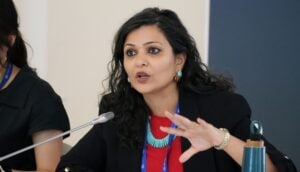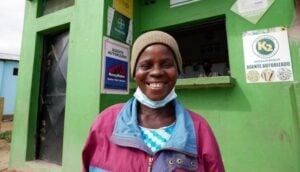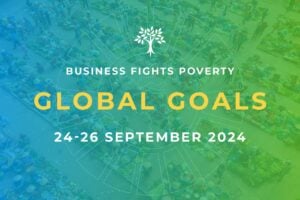‘Sustainability’ for Non-Profits
For at least two decades, the term ‘sustainability’ has been at the centre of discussion about non-profits. While people fairly quickly accept the notion that non-profits, or NGOs, should be sustainable, there’s often little analysis of what the term means.
Should non-profit finances be sustainable? This is what people usually refer to: the glorious idea that NGOs will have a ‘sustainable revenue stream’ so they can stop asking people for money.
Or should our outcomes be sustainable? In other words, should we seek to work only on projects or activities that will be able to continue after the non-profit has packed up and left?
Both of these approaches to sustainability are highly attractive. But both concepts require a deeper analysis, and this coronavirus crisis may yet make the sector revisit how we think of sustainability altogether.
Un-Regular Times
Many non-profits which are thought of as models of sustainability are being hit hard in this pandemic. These tend to be social-enterprise models, where the enterprise has a dual mission of creating both revenue and social benefit. For example, disadvantaged people gain skills for employment while working in a revenue-generating business. In regular times, this works well. Suddenly, though, we are not in regular times.
Businesses are closed. Revenue of for-profit businesses and not-for-profit social enterprises alike has been cut off. Right now, the donation model of raising income is likely to be far more effective at funding an operation. Even though people may find it harder to give, a smaller donation stream is better than a zero-revenue stream. In addition, grants from foundations can be a continuing revenue source even during these strange times. As unemployment is spiking, people trained by social enterprises, often for jobs in the hard-hit service industries, are as likely to be laid off as anyone else.
Agility & Diversity
The focus of much thinking until now has been that non-profit sustainability hinges either on which type of income it receives, or whether its work creates lasting change. Both of these are important considerations, but right now many non-profits will judge their sustainability by whether or not they and their work survive this crisis.
So what would actually make a non-profit sustainable in these extreme times? As the pandemic continues to play out around the world, the two attributes of agility and diversity seem to be extremely important in keeping non-profits running.
Agility
Being agile, able to move quickly and adjust to changed conditions, enables non-profits to flex and bend rather than collapsing. Being agile means being free of heavy infrastructure and hierarchy. Freedom from these enables quick decision-making and an ability to pivot in a crisis.
If an organisation has invested all its resources into one large system, they may now be finding they have become irrelevant overnight – at least for the duration of the crisis, if they survive it. And if they are waiting on multiple boards and committees to come to agreement about how to respond to coronavirus, they may find that their well-thought-out solutions come much too late.
Agility enables non-profits to change when circumstances change:
- Are the organisation’s resources flexible, that they can be redirected to different purposes?
- Can staff’s skills be redeployed to new tasks when called on?
- Are there decision-making mechanisms in place for people on the front lines to quickly steer the direction of the organization in fast changing situations?
In times of crisis, adaptable, agile non-profits will be much more likely to sustain their work and continue operating.
Diversity
In a non-profit, organizational diversity (as opposed to staff diversity) is not always appreciated.
NGOs with a single focus or activity are more easily marketed than those which take on a diversity of activities and objectives. For many good reasons, we like to be able to explain what our organisation does in a single, simple sentence.
But in a crisis like this one, that creates massive risk. A non-profit that runs social clubs for children as their sole activity will suddenly be unable to operate. But if they have also developed online learning platforms, the work will still be relevant. In good times, people will ask the question “Why not just stick at one thing and do it really well?”
In bad times, that singularity may be a devastating mistake.
Similarly, diversity in funding will be a life-line to non-profits right now. Any charity that was receiving all of its income from a restaurant chain or the travel sector will suddenly be facing an abyss. This was the case in 2008 when some excellent organisations whose income came solely from the financial sector disappeared overnight.
Non-profit fundraising staff may dream of that one big donor who gives the organisation all it needs. But when that ‘one big donor’ hits skid row, it’s game over.
Thinking back to the social enterprise model, any such organisations which raised 100% of their income through a business which has shut down in this crisis will be wishing they had multiple sources of income right now. Unfortunately, the conventional wisdom that being fully ‘self reliant’ by generating all of your own income has long been taken as gospel.
Right now, we are seeing why diverse models of funding are very important.
Being Crisis-Ready
Crises like this one are rare, but indications are that disruptions to ‘business as usual’ are becoming more common, whether through global instability, environmental catastrophe, or major health concerns like the coronavirus.
Non-profits may need to reconsider the currently accepted wisdom of what constitutes sustainability. In light of the coronavirus pandemic, we can see that what seems sustainable in ‘good times’ might not hold true in a crisis. To be resilient and to ensure that we can help vulnerable people when they need us most, non-profits need to be perpetually crisis-ready.
As we examine our sector in light of this experience, we must be careful to not throw out the baby with the bathwater.
There’s much of value in the existing models – but without being agile and diverse, non-profits are highly vulnerable to sudden changes in the world environment.
For more information on the Blue Dragon Children’s Foundation and how to engage visit – https://www.bluedragon.org.
This article was previously featured on Sustainable VN and is reproduced with permission.









